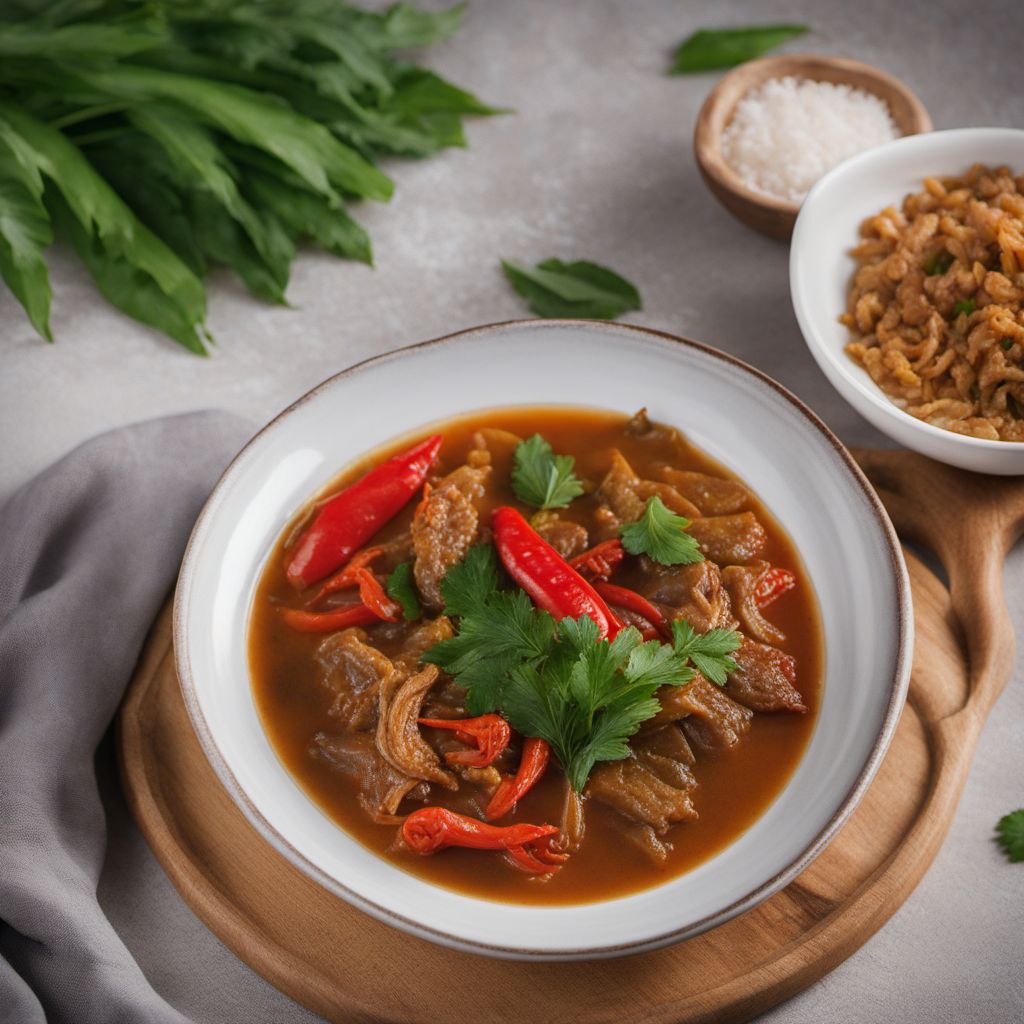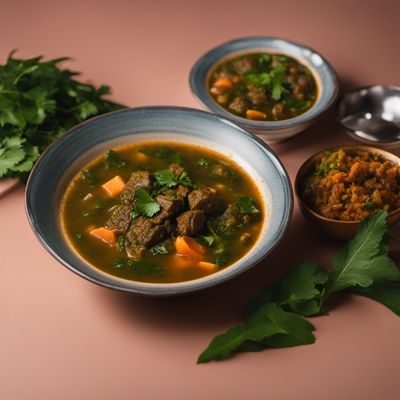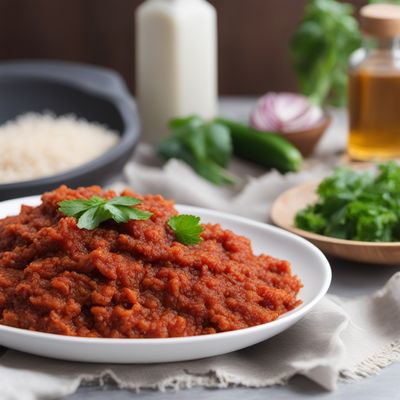
Recipe
Edikaikong Soup
Savory Delight: Edikaikong Soup - A Taste of Nigerian Tradition
4.8 out of 5
Edikaikong Soup is a traditional Nigerian dish that originates from the Efik tribe. This hearty soup is made with a combination of nutritious vegetables and protein-rich ingredients, resulting in a flavorful and satisfying meal.
Metadata
Preparation time
20 minutes
Cooking time
40 minutes
Total time
60 minutes
Yields
4 servings
Preparation difficulty
Medium
Suitable for
Gluten-free, Dairy-free, Paleo, Low-carb, Keto
Allergens
Fish, Crustaceans, Alliums (onion and garlic)
Not suitable for
Vegan, Vegetarian, Nut-free, Egg-free, Soy-free
Ingredients
-
2 cups (470ml) ugwu leaves, chopped 2 cups (470ml) ugwu leaves, chopped
-
2 cups (470ml) water leaves, chopped 2 cups (470ml) water leaves, chopped
-
500g beef, cut into bite-sized pieces 500g beef, cut into bite-sized pieces
-
200g cow tripe, washed and sliced 200g cow tripe, washed and sliced
-
200g smoked fish, deboned and flaked 200g smoked fish, deboned and flaked
-
1 cup (240ml) palm oil 1 cup (240ml) palm oil
-
1 onion, finely chopped 1 onion, finely chopped
-
3 cloves of garlic, minced 3 cloves of garlic, minced
-
2 tablespoons crayfish, ground 2 tablespoons crayfish, ground
-
2 tablespoons dried fish, crushed 2 tablespoons dried fish, crushed
-
2 scotch bonnet peppers, finely chopped 2 scotch bonnet peppers, finely chopped
-
1 teaspoon salt 1 teaspoon salt
-
1 teaspoon ground pepper 1 teaspoon ground pepper
Nutrition
- Calories (kcal / KJ): 350 kcal / 1465 KJ
- Fat (total, saturated): 25g, 10g
- Carbohydrates (total, sugars): 5g, 2g
- Protein: 30g
- Fiber: 3g
- Salt: 1g
Preparation
-
1.In a large pot, heat the palm oil over medium heat.
-
2.Add the chopped onions and minced garlic to the pot and sauté until fragrant.
-
3.Add the beef and cow tripe to the pot and cook until browned.
-
4.Stir in the crayfish, dried fish, and chopped scotch bonnet peppers. Cook for an additional 5 minutes.
-
5.Add the smoked fish to the pot and stir well.
-
6.Pour in enough water to cover the meat and bring to a boil. Reduce the heat and simmer for 30 minutes.
-
7.Add the chopped ugwu leaves and water leaves to the pot. Stir well to combine.
-
8.Season with salt and ground pepper. Cover the pot and simmer for another 10 minutes.
-
9.Remove from heat and let the soup rest for a few minutes before serving.
Treat your ingredients with care...
- Ugwu leaves — Make sure to wash the leaves thoroughly and remove any tough stems before chopping.
- Water leaves — Rinse the leaves in cold water to remove any dirt or debris before chopping.
- Palm oil — Use authentic Nigerian palm oil for an authentic flavor. If unavailable, substitute with red palm oil.
Tips & Tricks
- For a spicier version, add more scotch bonnet peppers.
- Adjust the thickness of the soup by adding more water if desired.
- Serve the soup with a side of pounded yam or fufu for a complete Nigerian meal.
- Leftover Edikaikong Soup can be stored in the refrigerator for up to 3 days.
- To enhance the smoky flavor, you can grill the smoked fish before adding it to the soup.
Serving advice
Edikaikong Soup is traditionally served hot and enjoyed with a side of pounded yam or fufu. The combination of the thick soup and the soft, starchy side dish creates a satisfying and filling meal. Garnish the soup with a sprinkle of chopped scotch bonnet peppers for an extra kick of heat.
Presentation advice
To present Edikaikong Soup beautifully, ladle it into individual bowls and garnish with a few ugwu leaves on top. The vibrant green color of the leaves will add a pop of freshness to the dish. Serve the soup alongside the pounded yam or fufu, allowing guests to mix and match as they please.
More recipes...
For Edikaikong
For Nigerian cuisine » Browse all
More Nigerian cuisine dishes » Browse all

Obara
Obara is a traditional Nigerian dish that is made with beans and vegetables. It is a hearty and nutritious dish that is perfect for vegetarians and vegans.

Afang Soup
Afang Soup is a traditional Nigerian soup made with afang leaves and a variety of meats. It is a rich and flavorful soup that is perfect for...

Dodo Ikire
Dodo Ikire is a popular Nigerian snack made from plantains and spices. It is crispy on the outside and soft on the inside, with a spicy kick.






